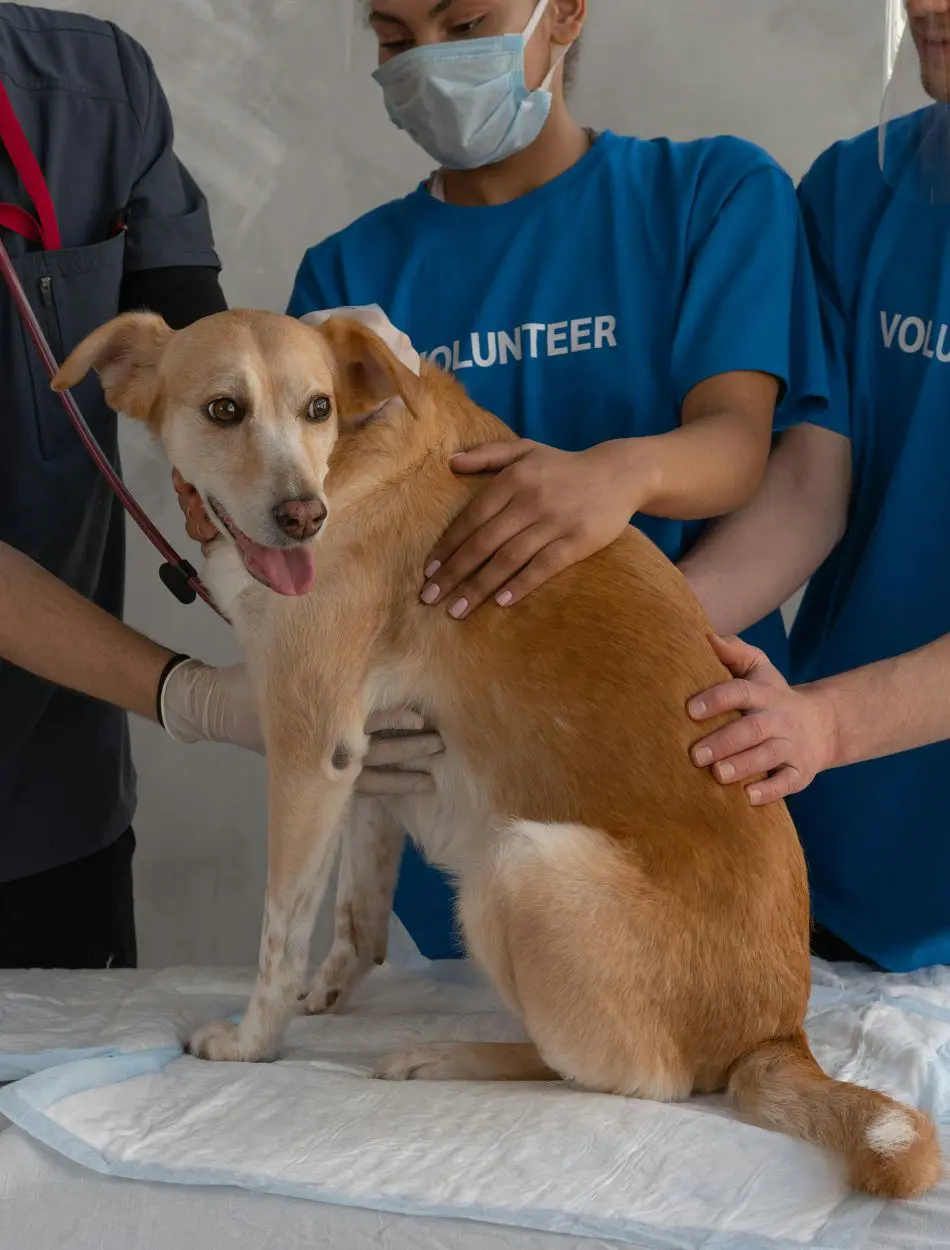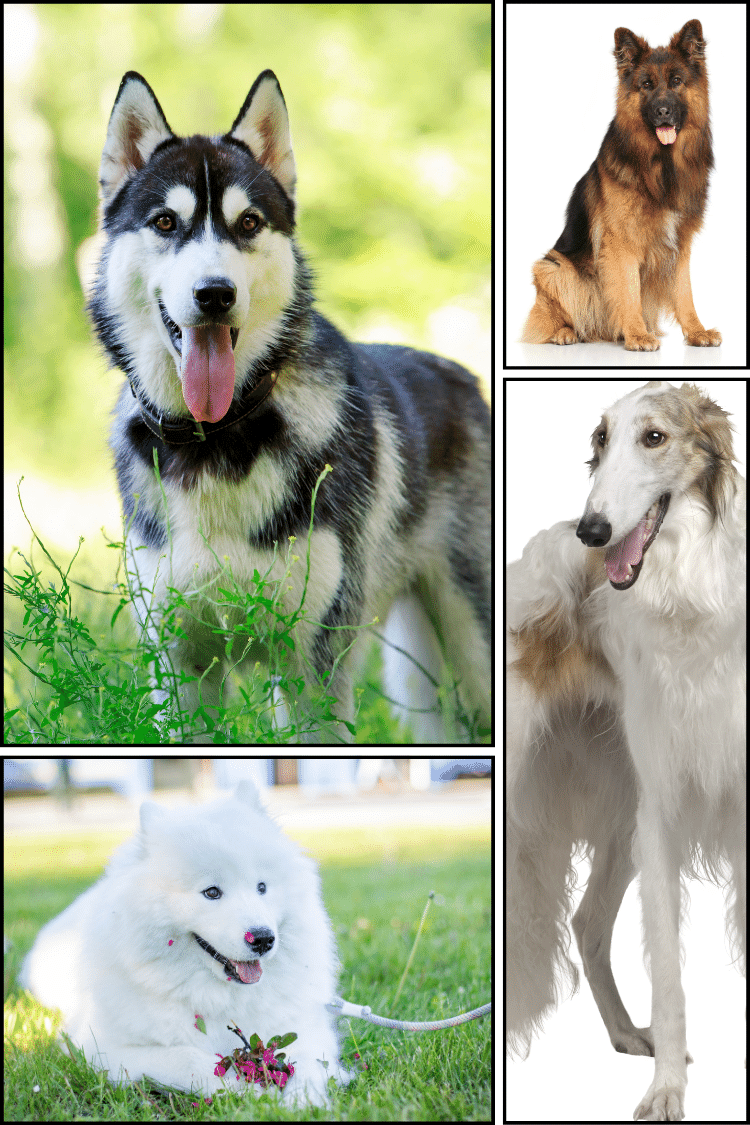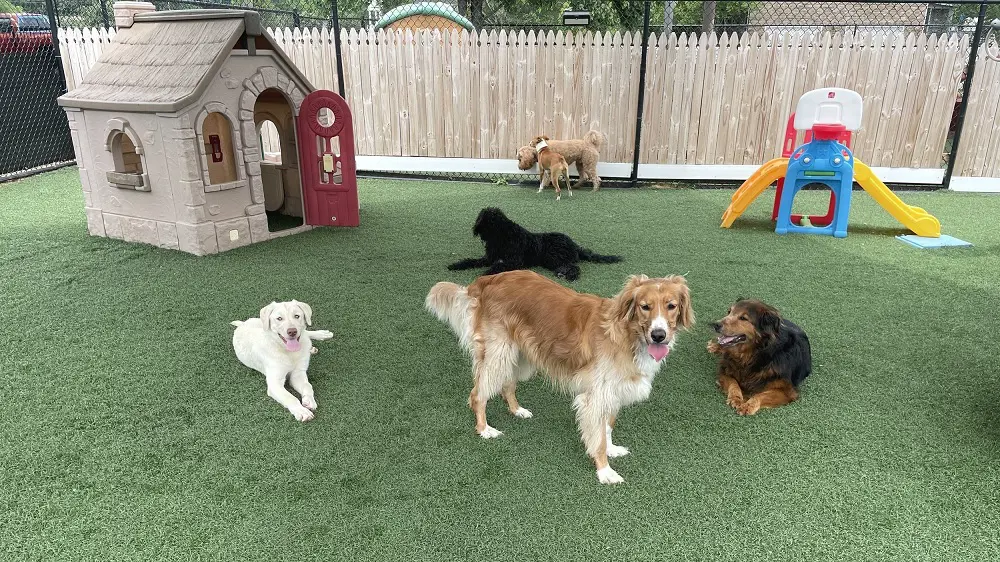Is My Dog Depressed? Possible Symptoms And Causes

It is hard to say whether your dog has depression, however, there are clear signs that you should be able to recognize when it comes down. For instance, if your dog is all of a sudden not as excitable about things he used to love doing like playing fetch or even going on walks this might be an indication that something more serious like depression is brewing.
Also, changes in appetite and how they eat as well as sleep may point out that your dog is dealing with emotional hurdles. If you have kept noticing these behaviors, please consult your veterinary or a dog trainer.
Understanding Dog Depression

Dog depression shares some features with human depression. It is a change in behavior and mood in the dog, portraying it as being sad or no longer interested in activities it enjoyed. In most cases, dogs are unable to talk, but their actions and moods are very telling of their feelings.
Realizing such signs early will help prevent a situation from aggravating further and ensure that your dog is happy and living healthily.
Importance Of Identifying Dog Depression
Dog owners should identify depression because it affects their general well-being. A depressed dog may not enjoy life that much, and the condition contributes to developing several physical health problems if not identified early enough.
Dog owners should identify depression because it affects their general well-being. It enables the owner to intervene early enough to provide support to the pets in regaining good health and back to themselves.
Symptoms Of Dog Depression

It is thus very important that dog owners recognize the symptoms to provide timely and efficient care. Just as much as dogs can get depressed too, they may demonstrate their emotional misery through various signs. Recognizing these symptoms will help you identify when your dog feels down and needs some extra attention and support. Some common symptoms include
Changes in Appetite
The most evident signs of depression in dogs include changed eating habits. A depressed dog will lose interest in food; hence, the appetite of the dog drastically reduces. As a result, the dog will suffer a case of weight loss among other many health problems. On the other hand, some dogs may overeat as a way of dealing with their emotions hence leading to weight gain. Monitoring your dog's eating patterns may give you insights into their mood.
Lethargy and Decreased Activity
A depressed dog will most often look tired, exhibiting less energy to do what they were once interested in. You might find out that your dog is sleeping more than usual, and it does not even bother going out for a walk or playing games. This may indicate that your dog is feeling down and lost interest in some activities that he or she normally engages in.
Withdrawal and Isolation
If your dog becomes withdrawn from social contact, then it could be a sign of depression. The depressed dog keeps looking for solitude and keeps itself away from owners and other pets' company. They may spend time in quiet corners or even disallow being petted or cuddled. This indicates that your dog is in a mental turmoil and needs attention.
Changes In Sleep Patterns
The depressed dog may exhibit changes in his sleep pattern. While some dogs go into excessive sleep, others may not get enough sleep. Restless sleep can be indicative of emotional upset. You can monitor the dog's sleeping habits to learn if he has changed in ways that would indicate depression.
Increased Vocalization
Excessive vocalization, whining, howling, or barking can be a sign of depression in dogs. These vocalizations will have your dog express its discomfort or sadness. Note any change in the vocal behavior of your dog, more so if it appears out of character.
Destructive Behavior
Sometimes, depression in canines manifests as aggressiveness or destructiveness. A generally calm dog may become irritable or even belligerent. They could start chewing up the furniture, dig excessively, or even act hostile toward fellow pets or family members. These actions are a way for your dog to express frustration and emotional stress.
Causes Of Depression

The causes and types of depressive disorders in dogs must be considered for proper treatment and resolution of the problem. Similar to human beings, dogs have their lives changed, and go through various stressful occurrences in their lives. This can therefore help feature the causes and therefore offer the support and kind of intervention to facilitate the recovery of your dog. Some common causes are
Loss of Companion
The grief of losing a fellow pet or human in the household can also cause depression in dogs. Dogs form strong attachments to their companions, and when they are no longer there, the dog may experience loneliness and sadness. This emotional imbalance can lead to withdrawal and depressive behavior in the dog.
Changes In The Household
Major changes at home, such as moving to a new house, welcoming a new baby, or saying goodbye to a family member, can affect a dog's emotional well-being. Dogs thrive on routine and familiarity, so any disruption to their environment can make them feel insecure and downcast.
Insufficient Stimulation and Exercise
Engaging in both mental and physical activities can help dogs stay happy and healthy. Without proper exercise and mental stimulation, dogs can become bored and even depressed. Making sure your dog gets enough exercise, playtime, and exploration will help prevent them from feeling sad and frustrated.
Chronic Pain Or Illness
A dog might become depressed due to chronic pain or long-term illness. When your dog is in discomfort and has a poor quality of life because of a long-standing health condition, they may easily slip into depression. It's important to effectively manage your dog's health conditions and provide them with the necessary care to ensure they remain comfortable.
Neglect and Abuse
Abuse and neglect can have a severe effect on the mental state of a dog. Mistreated dogs can exhibit depression-like behavior, with fear, shyness, and distrust of humans. A safe and affectionate environment is especially important for such dogs' emotional recovery.
Aging and Cognitive Decline
Like humans, even dogs experience depression with age. They develop a confused state, and a disoriented state, and are less interested in the very same things that used to excite them. Knowing how aging affects your dog's emotional well-being will help you in giving them the right care in their twilight years.
Separation Anxiety
In essence, dogs that have a separation anxiety disorder develop more feelings of distress whenever they are left alone; hence, symptoms of depression come in due to repeated exposure to such an anxiety-provoking situation. This is related to the fact that the constantly instilled feeling of abandonment and such emotional commotion it involves could result in a state characterized by chronic sadness, loss of appetite, and a general disinterest in interacting with the environment.
Environmental Stressors
Exposure to stressful environments, such as loud noises, chaotic households, or frequent changes in living conditions can be overwhelming for the coping mechanisms and drive a dog anxious and, finally, depressed. This is usually manifested in excessive barking, destructive tendencies, and a general loss of interest in activities.
Helping A Depressed Dog

A depressed dog shows a call for compassion and patience to understand the very root of their sadness and how they can improve their emotional well-being. Owners need to provide stability in a dog's life, companionship, physical activity, and probably professional help so that the animal can overcome such situations.
Closely monitor behavioral changes, as these will give insight into the mental state of the dog and how to put in place the right interventions so your beloved canine can live a happier, healthier life.
Providing Emotional Support
Emotional support is the most important thing in the life of a depressed dog. Stay with a dog; show physical love that everything is okay. The dog will find a considerable amount of comfort in your presence and attention. Do something that is loved by your pet, and try to follow a routine of frequent activities to feel secure.
Increasing Physical Activity
Regular exercise is crucial for your dog's physical and mental well-being. Increasing your dog's physical activity can help alleviate symptoms of depression. Taking your dog for a daily walk, playing fetch, or engaging in activities your dog enjoys can make a significant difference. Exercise releases endorphins that can uplift your dog's spirits and boost morale.
Mental Stimulation and Enrichment
Bear in mind that mental exercise is as crucial to a dog’s health as physical movement, same as to each canine’s owner. Ensure that your dog has indestructible toys, puzzles, and games that he will spend his time solving or playing with. Play with your dog or take him/her for training, to train him/her in new tricks to provide him/her with mental exercise, which is good for his/her confidence.
Socialization and Interaction
Pet socialization can be of great importance, especially to the overall well-being of any dog. Make sure that your dog follows other dogs and those people that are present around. Play with other dogs or take your dog to the park where it can interact with other dogs. Positive socialization can help them to have a better mood and unable the feeling of loneliness.
Consistent Routine And Environment
Keeping up a consistent routine and environment will help to reduce anxiety and depression in dogs. Pets do best with predictability, and the more reliable the routine, the more feelings of security they have. Your dog's daily activities of your dog should include regular feeding times, exercise, playing, and sleeping. Less changing their environment will make them feel easier and more secure.
Seeking Professional Help
If your dog does not snap out of the depressive state even when you have tried the above methods, it is probably time for you to seek professional help. You should consult a vet or a certified animal behaviorist who will now determine your dog’s condition and recommend the right treatment plan. Medications is also one of the treatments that may be prescribed to influence your dog to get back on his or her feet.
Prevention Of Dog Depression

The prevention of depression in dogs requires understanding the emotional needs of an animal and ensuring they receive enough socialization, physical activity, and mental stimulation within a stable environment. A person must observe the earliest signs and take proactive action toward the elimination of the causes of anxiety and sorrow. Regular visits to the vet can help identify health issues that may be contributing to depression.
Also, a caring and safe environment in which the dog feels secure and is loved contributes much to mental wellness. Great techniques to prevent depression include setting up rituals for your dog, positively rewarding their behavior, and providing time to indulge in things they enjoy.
Early Detection and Intervention
The key to preventing depression in dogs is early detection and intervention. Always be on the lookout for the general behavior of your dog. Observe them for signs of emotional distress. Dealing with these things early can prevent those problems from growing into more serious issues. Regular visits to a vet also aid in picking up the hidden problems in health, which might be responsible for depression.
Creating a Positive Environment
An environment that is positive and stimulating may help prevent depression. Provide your dog with a large variety of toys and activities, sufficient to keep them busy and happy. Love and care at home can work magic on your dog's emotional well-being.
Ensuring Enough Exercise And Stimulation
Regular exercise and mental stimulation are always necessary for the prevention of depression in dogs. Give your dog sufficient physical activities to make them healthy and happy. Give them mental stimulation through activities where they will be challenged, explore, or play. A well-exercised dog that has mental stimulation will have a lower tendency to be bored or depressed.
Building Good Relationships
A good bond with your dog may serve to prevent depression. Spend quality time with your dog and have activities with them. Give them some love, care, and attention that they need. A good bond with the owner can provide security and belonging in a place to the dog, hence reducing the risk of depression.
Monitoring Health
Keep a check on the health of your dog. Monitor your dog's health regularly to avoid depression in the first place. Keep veterinary check-ups, vaccinations, and preventive care up to date. Attend to any health issues at the earliest to ensure that your dog remains comfortable and free from any pain. A healthy dog is more likely to remain emotionally balanced and happy.
Top Lists






